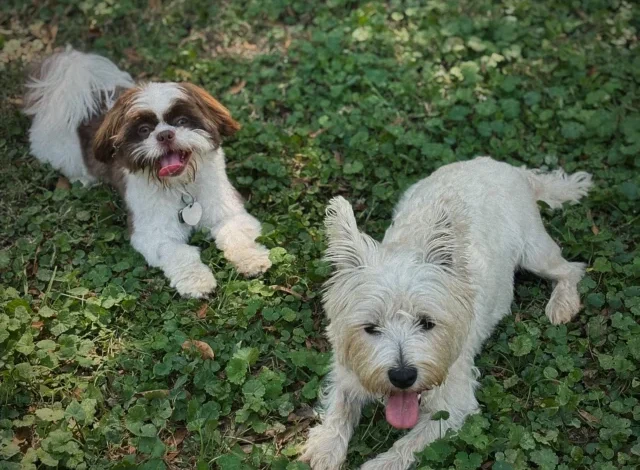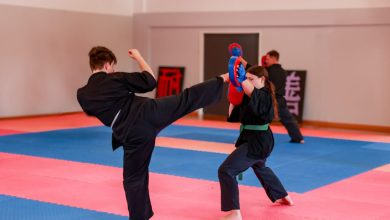The Ultimate Guide to Effective Dog Training in Charlotte, NC

If you’re a dog owner in Charlotte, NC, you know that training your furry friend is an essential part of building a happy and healthy relationship. Dog training in Charlotte, NC, not only helps your pet develop good behavior but also strengthens the bond between you and your canine companion. In this guide, we’ll explore the best practices, techniques, and local resources available for dog training in Charlotte, NC.
Why Dog Training is Important in Charlotte, NC
Dog training in Charlotte, NC, is crucial for several reasons. A well-trained dog is less likely to exhibit problematic behaviors, such as excessive barking, chewing, or aggression. Proper training also ensures that your dog can safely interact with other pets and people, which is especially important in a bustling city like Charlotte. Furthermore, many local ordinances require that dogs be under control at all times, making dog training in Charlotte, NC, not just a choice but a necessity.
The Best Methods for Dog Training in Charlotte, NC
When it comes to dog training in Charlotte, NC, there are several effective methods to consider:
- Positive Reinforcement: This is one of the most popular dog training methods in Charlotte, NC. It involves rewarding your dog for good behavior with treats, praise, or playtime. This method is highly effective because it encourages dogs to repeat behaviors that earn them rewards.
- Clicker Training: A subset of positive reinforcement, clicker training uses a small device that makes a clicking sound to mark the exact moment your dog performs the desired behavior. This method is widely used by professional trainers in Charlotte, NC, due to its precision and effectiveness.
- Obedience Training Classes: Many dog owners in Charlotte, NC, opt for professional obedience training classes. These classes provide structured training sessions led by experienced trainers who can help your dog learn basic commands and manners.
- Behavioral Training: If your dog has specific behavioral issues, such as separation anxiety or aggression, you may need specialized behavioral training. Charlotte, NC, has several trainers who specialize in addressing and correcting these issues.
- Puppy Training: Early training is crucial for puppies. Charlotte, NC, offers a variety of puppy training programs that focus on socialization, basic commands, and housebreaking.
Finding the Right Dog Trainer in Charlotte, NC
Selecting the right trainer is essential for successful dog training charlotte nc. Here are some tips to help you choose the best trainer for your dog:
- Experience and Certification: Look for trainers in Charlotte, NC, who have certifications from recognized organizations, such as the Association of Professional Dog Trainers (APDT). Experience in handling various breeds and behavioral issues is also important.
- Training Methods: Make sure the trainer uses methods that align with your philosophy. Positive reinforcement is generally recommended, but it’s important to understand the specific techniques a trainer uses.
- Client Reviews: Read reviews and testimonials from other dog owners in Charlotte, NC. Positive feedback from satisfied clients is a good indicator of a trainer’s effectiveness.
- Consultation: Many trainers in Charlotte, NC, offer initial consultations. Use this opportunity to discuss your dog’s needs, the trainer’s approach, and any specific goals you have for the training.
Local Resources for Dog Training in Charlotte, NC
Charlotte, NC, is home to numerous resources for dog training. Whether you’re looking for group classes, private sessions, or specialized training, you’ll find plenty of options in the area.
- Dog Training Facilities: Charlotte, NC, has several dog training facilities that offer a range of services, from basic obedience to advanced behavioral training. These facilities often have indoor and outdoor training areas, providing a controlled environment for your dog to learn.
- Parks and Open Spaces: Charlotte, NC, boasts numerous parks and open spaces where you can practice training techniques with your dog. Locations like Freedom Park and McAlpine Creek Park offer ample space for leash training, recall practice, and socialization.
- Dog Training Events: Keep an eye out for dog training events and workshops in Charlotte, NC. These events are great opportunities to learn new skills, meet other dog owners, and expose your dog to different environments and distractions.
Common Dog Training Challenges in Charlotte, NC
Training a dog can be challenging, especially in a dynamic environment like Charlotte, NC. Here are some common challenges you might face and tips on how to overcome them:
- Distractions: With so much going on in Charlotte, NC, it’s easy for dogs to get distracted. Practice training in a variety of settings, gradually increasing the level of distraction as your dog becomes more reliable.
- Consistency: Consistency is key in dog training. Make sure all family members are on the same page with commands and expectations to avoid confusing your dog.
- Time Commitment: Training takes time and patience. Even with a busy schedule, it’s important to dedicate regular time to your dog’s training. Short, frequent sessions are often more effective than long, infrequent ones.
- Socialization: Charlotte, NC, is a social city, and your dog will likely encounter many people and other animals. Proper socialization during training will help your dog remain calm and well-behaved in various situations.
How to Maintain Your Dog’s Training in Charlotte, NC
Once your dog has completed training, it’s important to maintain those skills to ensure long-term success. Here are some tips for maintaining your dog’s training in Charlotte, NC:
- Regular Practice: Continue practicing commands and behaviors regularly. Incorporate training into daily activities, such as walks or playtime, to reinforce what your dog has learned.
- Advanced Training: Consider enrolling your dog in advanced training classes in Charlotte, NC, to build on their skills. Advanced classes can include activities like agility training, scent work, or advanced obedience.
- Engagement and Enrichment: Keep your dog mentally stimulated with enrichment activities. Puzzle toys, interactive games, and new experiences can help prevent boredom and reinforce good behavior.
- Socialization: Continue to expose your dog to new environments, people, and other dogs. Charlotte, NC, offers plenty of opportunities for socialization, from dog-friendly cafes to community events.
Conclusion
Dog training in Charlotte, NC, is an essential part of responsible pet ownership. Whether you’re dealing with a new puppy or an older dog with behavioral issues, the right training approach can make a world of difference. By understanding the importance of dog training, choosing the right methods, and taking advantage of local resources, you can ensure your dog is well-behaved, happy, and a joy to be around in Charlotte, NC.



